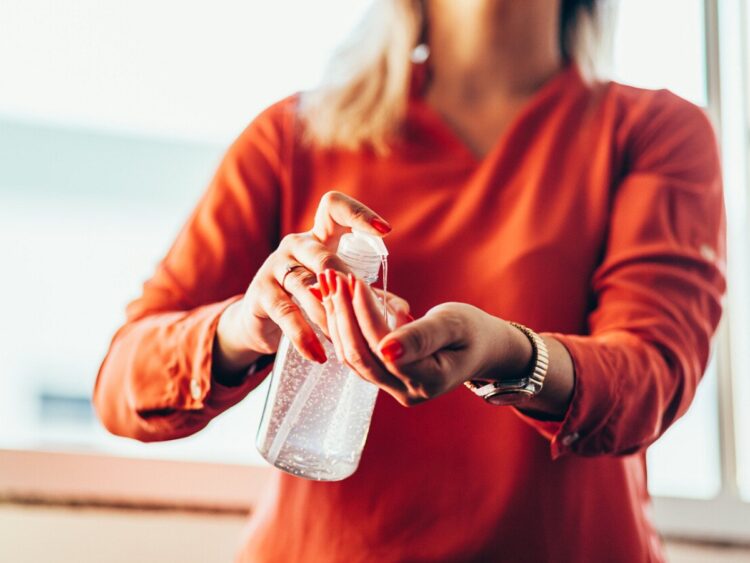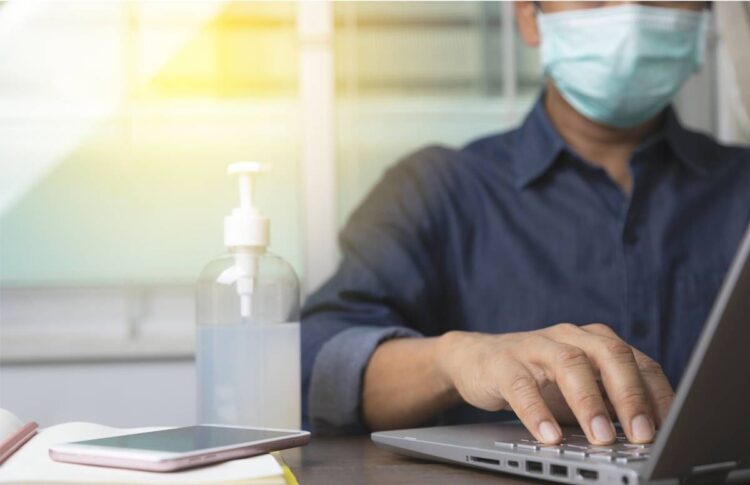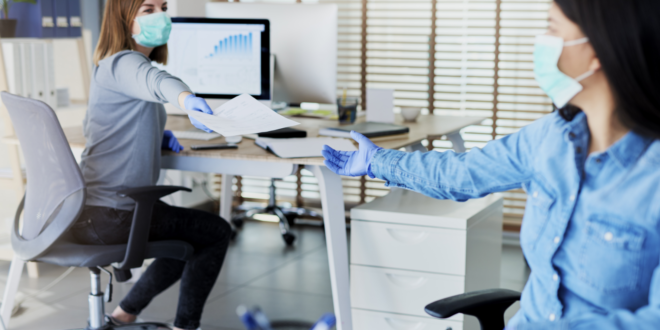Your chances of catching the COVID-19 virus are high when you’re near an infected person or if you’re constantly exposed to a crowded environment. One of the solutions imposed on many areas to prevent the spread of the virus is by transitioning to remote work. Many employees were allowed to bring their jobs home so they won’t need to head to their offices. However, some professionals have no choice, but to go to work despite the pandemic.
Health workers and essential employees need to be present in their workplace to be able to perform their jobs. But, this setup puts them at risk of getting sick. If you’re a medical professional who’s required to report for work, you should ensure that you practice extra precautions to avoid getting infected.
Wear The Right Clothing

Wearing the correct clothes is one of the best methods to guard yourself against getting sick. You’ll also be able to perform your duties as a healthcare professional without any worries. Hospitals usually require all personnel on duty to wear scrubs or personal protective equipment. This is to prevent the spread of infection and make the disinfection of clothing easier. When you finish your shift, you’ll be required to discard or wash your clothes so that you don’t bring any trace of the virus with you once you leave the premises. This practice is imposed because the novel coronavirus can live on surfaces for 48 to 72 hours.
If you need to source your own scrubs, you can find out more at Keswi or ask your department head about getting your uniform from the hospital.
Eat Healthily

One easy way to avoid infection during the pandemic is by ensuring that your body is in good health. Although it won’t guarantee that you’ll be immune to the virus, it’ll at least decrease your chances of experiencing severe symptoms in case you test positive.
Eating healthy is a must, especially if you have a highly demanding lifestyle. You shouldn’t forget to supply your body with enough nutrients to get you through the day. If you don’t have enough time to prepare your meals every day, you can cook large batches of food and separate them into microwavable containers. This way, you won’t need to worry about cooking and cleaning up the kitchen daily before you go to work.
When planning your meals, you should prioritize picking healthy foods, like vegetables and fruits. Have a wide variety of foods on each meal and try to stay away from fatty or sweet foods. You can find easy recipes to cook at home if you’re not confident about your kitchen skills.
Disinfect Your Work Station Regularly

Since the COVID-19 virus can remain in the air even after being dispelled and can stick to surfaces for a long time, you must clean the surfaces and items you use regularly. You should disinfect the things you touch a lot, like your computer or personal things, especially when you work in a hospital. You should also remember to wipe your phone often since it’s one of the things you always carry with you.
If you’re in a crowded workplace, remember to wipe doorknobs, tabletops, and shared items, like telephones or photocopying machines, since you don’t know if anyone who’s infected touched them recently. You should also be wary of what you touch. If there’s no need to place your hands on something, like other people’s desks, for example, then don’t touch it. You should make it a habit to be wary of what you come in contact with since virus droplets may be present without your knowledge.
Disinfecting the space where you frequent may help prevent the spread of the disease, and also lower the risk of infecting everyone else you work with.
Wear A Mask At All Times

Wearing a mask whenever you go outside the house is vital in preserving your health. It’ll ensure that you don’t inhale droplets that may be present in the air. However, simply wearing a mask isn’t enough to lessen your risk of getting the infection. Choosing the right mask and wearing it properly are also essential points you need to remember.
The recommended face mask for all medical staff is the N-95 respirator. It’s a thicker mask that secures your mouth and nose. It repels substances and particles, thus preventing you from inhaling droplets that may harm your health.
When you’re wearing a mask, you should ensure that it’s snug and is above your nose. You should also avoid pulling it down every time you’re speaking or irritated. It’s an uncomfortable but necessary precaution you must adhere to.
Also, once you take it off, you should avoid using it again. Disposable masks are meant for single-use since it may already be contaminated with foreign particles once you remove it. Washable masks, on the other hand, are handled a little differently. You rewash and use them multiple times without any problems. However, you must wash it thoroughly with disinfecting detergent after every use.
Eat Your Lunch Outdoors

It’s hard to protect yourself from the COVID-19 virus when you don’t have a choice, but to go to work. You’ll constantly be close to other people who may or may not be infected. The regular activities you usually do, such as going to the bathroom or eating your lunch, will also be more troublesome.
Eating in your workplace seems like a daunting idea when you think of how easy it’ll be for you to inhale virus-loaded droplets. After all, you’ll need to take your mask off since you can’t ingest your food if you’re covering your mouth. If you’re scared of aerosol transmissions, you can bring your lunch outside and eat it there.
Dining outdoors and staying away from other people who are also consuming their lunch may help you feel more at ease when eating. Airborne transmissions are less likely to happen when you’re in the open air. Just be sure not to eat in a crowded place, and maintain social distancing to ensure that you can eat in peace.
Final Thoughts
Securing a face mask and maintaining distance are some of the most effective ways to combat the spread of the coronavirus. If you’re required to go to work and socialize with other people, you should ensure that you’re prioritizing your safety at all times. Also, remember to follow the necessary precautions in your workplace to avoid getting sick.
 Hi Boox Popular Magazine 2024
Hi Boox Popular Magazine 2024



